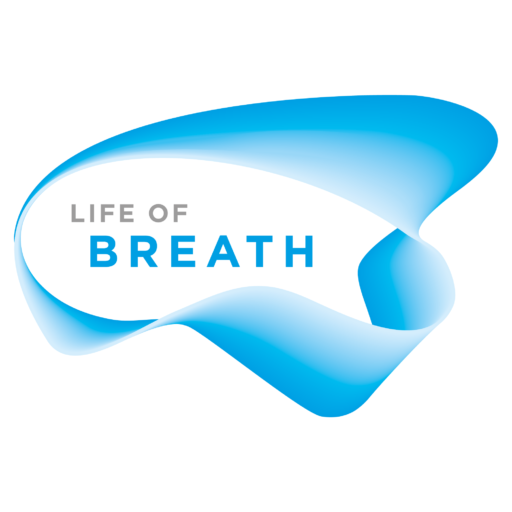‘Don’t drink the water and don’t breathe the air!’
David Scoins (lifelong runner, sometime sports teacher) spent seven years in China; a year or more in each of Xi’an, Nanjing, Beijing and Guangzhou, and shorter periods in other cities. The smallest of these cities has a population far bigger than Scotland. Here, he compares the various experiences in terms of pollution levels and air quality. He writes:
The developing world has a craving for power. At a time when China was opening a new coal-fired power station each week (understandably), there was a huge demand for fuel. In the West we are very fussy about the sort of coal we might burn in this way, but where the perceived need is high, one takes what is available. That meant that the level of coal dust in Xi’an, one of several past capitals of China, was such that one wiped one’s desk every morning; one’s balcony needed a thorough sweeping each week; and, as we joked in the office, when the photocopier need toner, all we had to do was leave the old cartridge open on a windowsill for a week. The level of muck in the air meant that the mountains a mere 30km away were seen about once a year. The locals called the sky white, not blue; they were right (see ‘Nothing but blue skies’).
In another previous capital (Nanjing) a year later, a different sort of pollution was prevalent. Nanjing is a centre for generating chemicals and there is a significant area outside the city filled with industrial plant. On wet days—continental rain can last for many hours—what came out of the sky was not fresh, not drinkable and quite noticeably polluted. Normally in air with particulate pollution, rain will clean the air, literally washing the dust out of it. When the pollution is chemical it reacts with the water, and the wet air is appreciably dangerous. As a Brit and a runner, I would preferably run in the warm rain (the streets are clearer and wet air is easier on the lungs – see ‘Who was chasing him?’)[1], but in Nanjing running in the rain was a mistake and the twice I tried it I had to stop, the airways hurt so much (see also David’s essay ‘Fresh Air’).
In Shanghai, the bulk of the pollution is motor-based. A surprisingly large amount is from the sea-going traffic out in the bay, which is burning sulphur-laden heavy diesel that is not required to meet any legal standards. The shipping, even when idle, produces a lot of fumes and these hang over the city when the weather reaches certain configurations. This air has a different chemical taste to that of Nanjing, being both more acidic and more sulphurous. A year spent two hours west of Guangzhou had a nearby factory making flooring that looked very like marble. When the city was downwind, visibility dropped to under a kilometre and you could taste the dust. This was fine particulate matter and of a range of sizes down to that which the body does not cope with at all well.
A year in Beijing, which has (and certainly had at the time) all of the previous problems (only worse) caused much more difficulty. Visibility within the city was rarely over 2km and sometimes under 500m; air quality was something that ruled what you did, where you went and how. Those with young families and the ability to choose would move elsewhere. One worried about long-term health damage and sought to live in air-conditioned areas: not merely heated or cooled depending on the time of year, but with filtered air. As one learned more, one began to worry about the filtration and supplemented air conditioning with HEPA filters, wore masks outside and restricted movement on bad days. Bad days in China are as nothing to bad days in Britain: PM2.5 pollution level (as AQI), for example, has a bad day in London is about 30 gm-3 [May ’08, Sep ’14, Feb ‘15] while Beijing has about 130 as an annual mean, with 30 as a good day and 300 plus as a bad one, looking only at 2015 figures (raw data can be found here and they are the same units).[2] Pollution in Asia is such that you must appreciate how very clean Britain is, especially compared to, say fifty or a hundred years ago. In 1960 if you fell in the Tyne your life was primarily at risk from the poisons in the water; not so fifty years later.
In the relatively affluent area of Beijing where the ex-pats live, out towards the airport and between ring roads five and six, the schools have been covering sports pitches with domes, making seals to the ground and then filtering the air inside so that there are large spaces of clean air in which sport can happen.[3] Traffic is a contributor to pollution and one should recognise that car air conditioning is not making much headway against fine particulate pollution. Beijing is very cold in the winter (weeks sub-zero) and very hot in the summer (weeks over 30º), so you have air conditioning whose heat pump you use for both heating and cooling. Once you have realised the depth of the pollution problem and inspected what your air conditioning really does and how its filters work (or fail to work), and certainly once you’ve cleaned them, you may well invest in a HEPA filter if only to have an idea what levels of particles you have indoors. Far higher than you imagined, I can tell you.
Don’t be put off visiting China. Nor should you in any way assume China is all polluted, nor that only China is polluted. Many cities in the wider Asia have similar problems (less so in Japan). China has many pollution meters in place and is now reporting its problems. India, Pakistan and Bangladesh do not yet do so. However, it would be wise, if visiting, to find a filtration face mask early on. For most pollutants, the body will recover when returned to a cleaner environment but some of the pollutants we now measure do long-term damage. All people of frailty—the very young, the very old, the chronically ill and especially those with breathing problems—react badly to polluted air, which does more than magnify the existing problems.
[1] Readers with a particular interest in sport might also enjoy David’s essays ‘Running factors‘ and ‘Air quality issues‘.
[2] Readers with a particular (particulate?) interest in air quality might find David’s essays ‘Breathe in, Beijing’ and ‘More on air quality‘ (both written during his time in China) instructive.
[3] Sporting culture in Chinese schools is very different from that of the UK; see David’s essay ‘Sports Day‘.
The title of this post is taken from Tom Lehrer’s song ‘Pollution‘, which was actually written about chemical contamination of American cities in the early 1960s: ‘When you visit American city / You will find it very pretty / Just two things of which you must beware: / Don’t drink the water and don’t breathe the air!’



